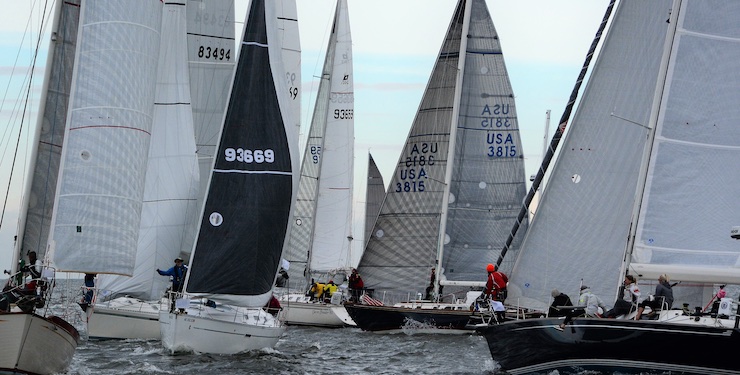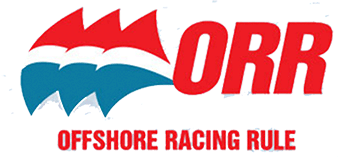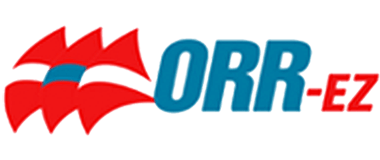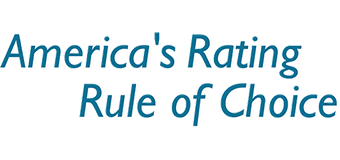The Offshore Racing Association (ORA) has developed a cross-country group of race managers who meet weekly to build on collective best practices and improve race scoring by local race committees.
Rating rules need to make two groups happy, the competitors and the race managers. So no matter how accurately we provide ORR and ORR-Ez ratings, if the race committee team is not having fun and feeling confident about how to use the rule, your event is potentially in trouble.
The same can be said about any VPP rule, which is why the U.S.-based Offshore Racing Association (ORA), owner of ORR and ORR-Ez, focuses on providing hands-on customer service to organizing authorities and race committees in the United States.
“We don’t tell race organizers what to do,” says Jay Tyson, chair of the ORA’s Race Management Group. “Basically we’re a listening group, and we welcome people in to share how they do things and what their challenges are, so we all can learn. We’ve been taught by Jim Teeters of our Technical Committee to keep exploring best practices to improve scoring and avoid dogmatism. In the end, it’s up to the organizer to decide what’s right for their fleets.”

ORR-Ez racing fleet at the Baltimore Harbor Cup in 2018. M.L. Gunther photo
Sharing Talents and Experiences is a Service
Eighteen months after its first meeting to support early adopters of the ORR-Ez rating system, the group has grown and now has representation from New England, the Chesapeake, California, New Orleans, Detroit, Milwaukee, and Chicago, in addition to Tyson who covers both Florida and Annapolis. It has also had some surprising results impacting many fleets, including PHRF—but more on that shortly.
“A VPP rule like ORR-Ez provides 20 ratings, most of them covering different wind strengths and course configurations,” explains Tyson. “For race committees worried about dealing with different winds, we often recommend starting with a medium wind rating on a random-leg course, which is similar to PHRF. They can learn and improve their scoring from there.”
The purpose of the Race Management Group, according to ORA Executive Director John Horton, is to share the talents and experience of ORR-Ez national and regional reps with OR-Ez race organizers around the country. Creating dialogue and sharing information provides a real service and the opportunity to reach out to new customers, he adds.
“People have also joined the group to meet their peers,” Horton says. “They keep coming back for the stories and insights others share—it’s almost like a support group.”
Finding Solutions to Regional Challenges
As an example of the kind of work the group does, Tyson points to a solution he helped organizers find for the Gulf Streamer, a race from St. Augustine, Fla., to Charleston, S.C. The race crosses three PHRF regions, so people were often unhappy with their assigned rating. By switching to ORR-Ez, that pain point was circumvented.
Tyson also conceived a custom course configuration known as “constructed course” for the - Annapolis to Bermuda Ocean Race. For the first leg down to the bridge tunnel at the entrance of the Bay, boats were given a rating expecting a lot of beating, whereas the ocean leg from there to Bermuda applied a rating assuming much more reaching. This made extra sense given that trophies are awarded in the race for the Bay leg as well as the entire race.
Recently, group member Kett Cummins, of Southern Yacht Club in New Orleans, took the same idea and applied it to the 2020 Gulfport to Pensacola Race, constructing a course that was 30 percent very light wind, 60 percent light wind, and 10 percent medium wind. The 2020 corrected times of the finishers were substantially closer than as double-scored with PHRF, although only a few positions were changed as a result.
Reps have also taken a hands-on approach to building fleets with a commitment to getting things right for each owner. They receive an alert as each owner in their area applies for a certificate and then work as needed to make sure the owner-supplied data is as complete and accurate as possible. Rating applications are reviewed by regional reps, then by the chairman, and finally by the ORR-Ez Technical Committee.
If the boat is not one of the 900 models in the ORA’s database, the Technical Committee will put its “build a boat” software to work. Gathering any design plans available including from design offices and builders if available, the committee will also plot data from similar boats to approximate the dimensions and shape of the boat and rig as needed to develop a fair rating.
Creative Problem-Solving, Rating Reviews, New Products
The Race Management Group also receives those calls from organizers who want to fit a boat without a rating into their race at the last minute. If at all possible, one of the group will dive into the database and find a similar boat with a rating that will work for the next day’s race.
The Group has also spawned an ORR-Ez rating review group, chaired by Devon Bader, of Milwaukee. When concerns arise over specific ratings, Bader’s group will gather objective boat data and race scores and provide a recommendation to the Technical Committee. This has led to rating changes, notably when reported practices are contrary to the assumptions of the committee. Examples include sport boats sailing with less or lighter-weight equipment aboard than expected and cruiser/racers sailing short-handed, with few crew on the rail.
The Race Management Group went so far as to generate a new product for the association, based on discussions with Tom Beery, chairman and chief administrator for the Gulf Yachting Association PHRF. The new rating product, named ORA-1, will be provided in 2021 at a wholesale price to the GYA’s fleet of nearly 500 boats. The certificates will have five spinnaker and five non-spinnaker ratings and will allow organizers to choose from a benchmark spinnaker or non-spinnaker rating, or ratings for two course configurations and light or medium winds. (See “ORA Rating Services to Provide Multiple Ratings to GYA-PHRF Fleets.”
If interested in learning more about the Race Management Group, email Jay Tyson.


